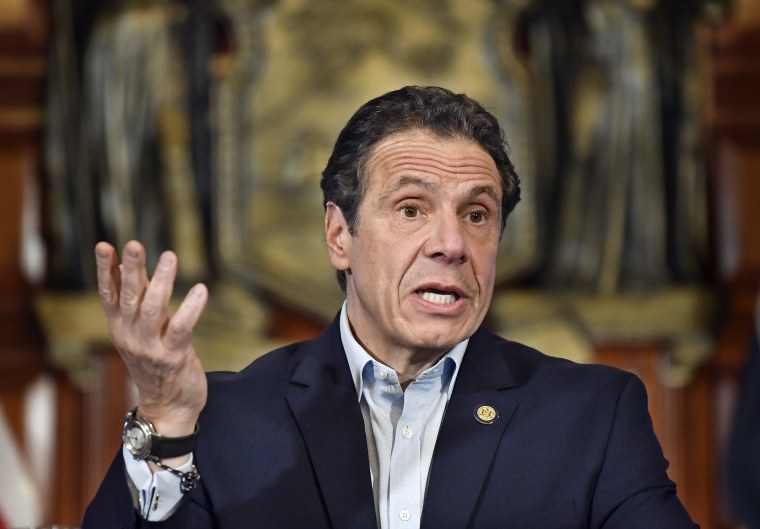
New York Gov. Andrew Cuomo signed a measure Wednesday that would allow the state to pursue charges against people who have received a presidential pardon — a law seen as a direct shot at President Donald Trump.
Multiple ex-Trump aides and associates are imprisoned or facing legal scrutiny in New York.
The president also is facing numerous federal, state and congressional investigations related to his administration, campaign and business dealings.
The New York Assembly and Senate passed the bill to end the so-called "double jeopardy loophole" in May. The newly signed law creates a narrow exception in the state's double jeopardy law, which prohibits the prosecution of a person who's been tried for the same crime by the federal government.
The new exception allows state prosecutors to pursue investigations into any pardoned individual who served in a president's administration, worked directly or indirectly to advance a presidential campaign or transition, or worked at a nonprofit or business controlled by a president and whose alleged criminal activity took place in New York. The law also allows for investigations to be opened or continued into anyone who was pardoned for the president's benefit.
The measure was proposed after reports Trump was weighing pardoning his former campaign manager, Paul Manafort, who's serving a seven-and-a-half year prison term on federal bank fraud, tax evasion and conspiracy charges stemming from former special counsel Robert Mueller's investigation into Russian interference in the 2016 presidential election.
In addition to the federal conviction, Manafort was indicted on state mortgage fraud charges in March by the Manhattan district attorney's office. That office has also launched a criminal investigation into the Trump Organization over two hush money payments during the 2016 campaign to women who claim they had affairs with the president.
Mueller's 400-plus page report scrutinized Trump's comments on possibly pardoning Manafort as well as ex-longtime attorney Michael Cohen, who was involved in the hush payments, and former national security adviser Michael Flynn.
While presidents can pardon federal crimes, they cannot pardon state offenses.
The New York measure was backed by state Attorney General Letitia James, who began investigating the finances of the president and the Trump Organization earlier this year. That probe came after Trump's former lawyer Cohen told Congress that Trump had inflated the worth of his assets in financial statements to secure bank loans.
James has said the law was necessary because double jeopardy "exists to prevent someone from being charged twice for the same crime, not to allow them to evade justice altogether."
Trump has dismissed her efforts as "presidential harassment."
NBC
News